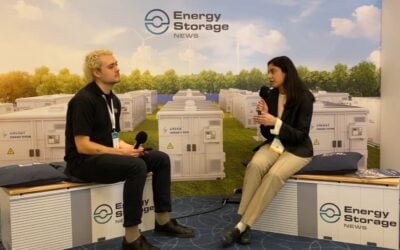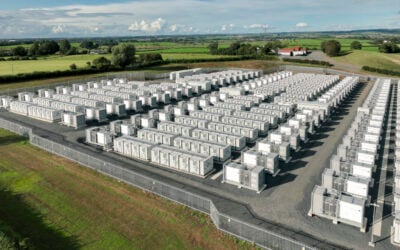
An updated technical guide to co-locating renewables and battery storage has clarified previously conflicting guidance on the matter, removing barriers and potentially unlocking the “tremendous potential” of solar homes.
Late last week energy regulator Ofgem published an update to its technical guidance on co-locating renewables and storage, aiming to clarify a number of problem areas that had arisen since its maiden guidance on the subject was released last year.
Within that guidance was the clarification that homes with solar already installed that then added battery storage units or smart meters would continue to receive deemed export tariff payments, a matter which had been in doubt following come contradictory guidance.
The industry had previously received two conflicting pieces of technical guidance on the matter; one piece which required homes with solar to install smart meters and switch to export meters, and another which stopped homes from receiving metered export payments when storage is included in order to prevent the possibility of systems being rewarded for exporting power that had previously been drawn from the grid.
Try Premium for just $1
- Full premium access for the first month at only $1
- Converts to an annual rate after 30 days unless cancelled
- Cancel anytime during the trial period
Premium Benefits
- Expert industry analysis and interviews
- Digital access to PV Tech Power journal
- Exclusive event discounts
Or get the full Premium subscription right away
Or continue reading this article for free
The new technical guidance clarifies that feed-in tariff-accredited installs will retain their deemed export payments even if a smart meter and/or battery is installed, provided the usual deemed export eligibility requirements are met.
The Solar Trade Association (STA), which pushed for the clarification from Ofgem by submitting numerous case studies and collaborating with other industry bodies, said the technical guidance could require greater clarity as a result of its complex nature, but did state that it would help to unlock the “tremendous potential” of the UK’s 900,000 residential solar installs.
“Credit to Ofgem for listening and for doing the right thing here to get domestic smart homes moving forwards. We now need government to remove the much higher 20% VAT for retrofit battery storage systems, compared to 5% VAT for new PV and storage system, to really boost this market,” Chris Hewett, chief executive at the STA, said.





